Sunday, May 28, 2023
Bishojo Senshi Sailor Moon Act 56 Review
Sunday, May 21, 2023
Bishojo Senshi Sailor Moon Act 55 Review
Thursday, May 18, 2023
Mythology Scaling to Real World, Pros and Cons
I enjoy scaling Mythological Figures yet one of the eternal arguments that come up about it is the following:
"Yeah this character created a star, but they didn't think the stars were that big so it's not that impressive a feat."
I have to be honest, I'm a bit of two minds about this argument and can see arguments for and against it. This blog will basically be assessing this logic. Before I begin, however, powerscaling, though it might not seem it, is really two related but distinct questions that each scaler needs to pick what they're asking:
"If these characters and their stories were real and they fought, who would win?"
and
"If these characters were written to fight, like in a crossover, who would win?"
These often have the same result, but have some different assumptions. If you're trying to answer the first question then when powerscaling a character you're asking "how strong would this character have to be, at minimum, to perform the feats they are attributed if these events actually happened?" and if you're trying to answer the second question then when powerscaling a question you're asking "how strong is this character intended to be depicted as." The two questions will have different perspectives on things like authorial intent, outliers, consistency, and diegetic vs non-diegetic interpretations of the text.
When powerscaling, I'm trying to answer the first question. I don't usually think "how strong did the author intend this character to be" or "how strong are they usually depicted", my thoughts are "alright if this feat really happened, it would require about this level of power or speed to actually do." I don't necessarily think either way is superior or inferior, just that they are answering different questions. I'm going to try and talk about Mythology Scaling to the Real World using both questions.
Question A:
In Method A, what the author intended is seen as sort of irrelevant. As such if I was to talk about a feat for Zeus from the Theogony, how large Hesiod thought the universe was is kind of irrelevant. So that makes it nice and simple, right? Mythology Feats scale to the Real World equivalents?
Well, no, that's just where it begins. While this question treats the fictional setting as a "real" world for the purposes of the hypothetical, and therefore the author isn't being considered, details given about this world can be anything said in the text. If a fictional setting is meant to take place on a planet that is not Earth, then destroying the planet it takes place on can consequently be a different level of power than destroying the Earth.
This might seem like a different scenario however because these Mythologies purport to happen on the Real World and in fact, often seek to explain things about the real world. Therefore it seems especially clear here, though this would be my default assumption anyway, that the "universe" of the stories is identical to ours except where it is noted. This would be my default assumption anyway for any story.
There is an additional wrinkle, however.in the form of cosmological contradictions. Talking about "Mythological Zeus" or really "Mythological" anyone is always going to be a vague composite. What we call mythologies are really many stories by many writers who often have different cosmologies in mind and write different cosmologies. Yet at the same time, these stories ARE often meant to take place in the same "universe." They will very often directly reference each other, saying this person was the descendant of that person, or reference events from other mythical stories. The closest equivalent to how Mythologies are formed in terms of modern writing would be something like Western Superhero Comics with many writers over generations writing in a shared universe, except the DC Universe is 100 years old and has central editors to keep stories in line while Greek Mythology spans a length of time at least many times that length and encompasses everything from the pop culture of the day like plays, to the actual temple religion overseen by priests. These are writers distinct enough that Aristole refers to Anaximander as being "a long time ago" (~200 years difference) yet the full span is several times that.
And these writers did contradict. I remember being in one powerscaling debate about Zeus and my opponent refused to believe any of the Greek Gods could be above at max Star Level because one of the ancient Greeks estimated the size of the universe to be what we would today would known to be the size of a large star. However, the Greek philosophers and astronomers did not all agree with Anaximander along with others thinking the universe was infinite and with various primordial entities in the Greek Mythology having statements of being "boundless" or "endless" in the actual religious texts.
Broadly these contradictions have to be reconciled by whatever method a powerscaler usually uses to reconcile differences in cosmology by different writers. Other long-running verses with many authors have similar contradictions, it's just here the differences are on a wider scope due to a far greater timescape and lack of central editing authority. Broadly I treat mythological feats like I would any other feats, I treat it as equivalent to the real world unless I see a textual statement that the object of the feat is distinct, in which case I treat it how the verse specifies. If a mythological deity makes a star, I would call them star level normally. If the culture it comes from doesn't know what a star is, that doesn't really matter to me since I'm treating it as though the story is real for the purposes of the hypothetical. If philosophers of this culture have wrongful postulations that stars are holes in the sky as large as, say, a person, I wouldn't consider it important especially if there are conflicting views as I don't consider the mindset of the person writing the story important for the question at hand. If the religious text explicitly says that the stars are holes in the sky the size of people I would say the feat is the power level needed to make a person-sized hole in the sky. If it says numerous contradictory things about what the stars in the sky are, I will try to reconcile the maximum amount of information I can.
Question B:
This is not my natural inclination, so I may not get the logic down for what people who ask this question would think on the matter. I am not as big a fan of answering this question as, being more narrative analysis-y than math and science-y, it's more ambiguous a lot of the time and more subjective.
Obviously if you take the Ancient Greeks or any society from Pre-Modern times they would not be thinking about their Deities manipulating stars and galaxies the way we would think about them, because they didn't know about these things. While the approximate size of the Earth has been known since about 240 BC when it was calced by Eratosthenes, the true size of the universe is obviously very counter-intuitive to the human mind, and things like manipulating the stars or the milky way are very obviously not intended by the ancient writers to be the sizes we know them as today, the very notion of such sizes would be even more baffling to them then they are to people today. Indeed many times Mythological Gods have feats of manipulating geographical features of the Earth; mountains, valleys, islands, and so forth, and this is meant to be very impressive which would obviously not be the case if they would also create stars as we know them today.
I do think there might still be an argument however to use real world sizes for at least a large amount of mythological feats as well. If we are considering Authorial Intent, most of the themes these feats are not included to specifically state the character is mountain level or star level. It's meant to impress upon the reader or listener the divine power of the gods. I highly doubt that if you went back to ancient Greece and somehow told the Priests of Apollo that the Sun is a sphere over 100 times the diameter of the whole of the Earth, that they would change their religious beliefs. Instead, I think they would respond something to the effect that this is the power of Lord Phoebus Apollo that his chariot flies through the Heavens regardless. The relevance of these feats in the minds of their authors isn't the specific power of the feats, but the great and awe-inspiring power of the Gods. This is also why there are contradictions in power. Even ignoring the cosmic feats, it might seem a contradiction that Typhon, a monster on the power of Zeus could be trapped under Mt. Etna, yet Athena in the Gigantomachy hurled the island of Sicily in combat against the giant Enceladus, Athena being weaker than Typhon and Mt. Etna being a single volcano on Sicily. Yet both of these feats individually are meant to emphasize the divine power of the characters involved and are not concerned with the specifics of the the joules or kilograms involved.
Ultimately how the ancient Greek believers or any Pre-Modern people would have taken in the updated scientific knowledge of the universe we possess is unknowable. Broadly speaking for mythological feats I take the feats to be equal to the real-world feats unless the information is presented contrawise in the text itself, which is the same standard I take for any series.
Sunday, May 14, 2023
Bishojo Senshi Sailor Moon Act 54 Review




.jpg)
.jpg)



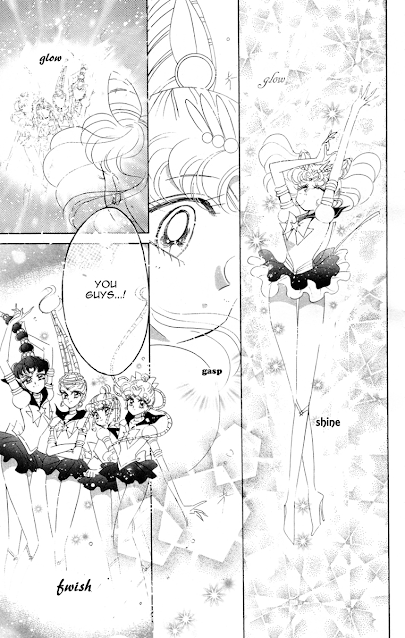





.jpg)












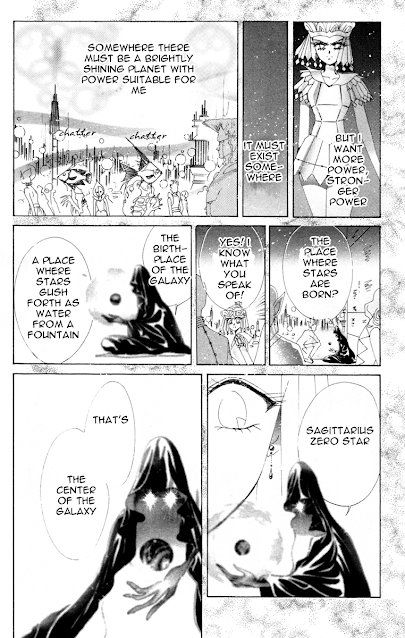
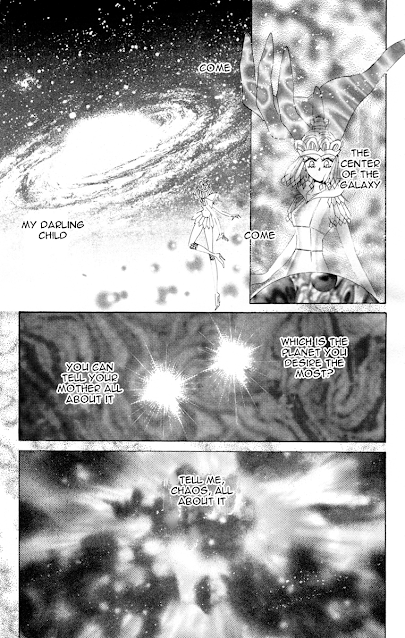
.jpg)

.jpg)





















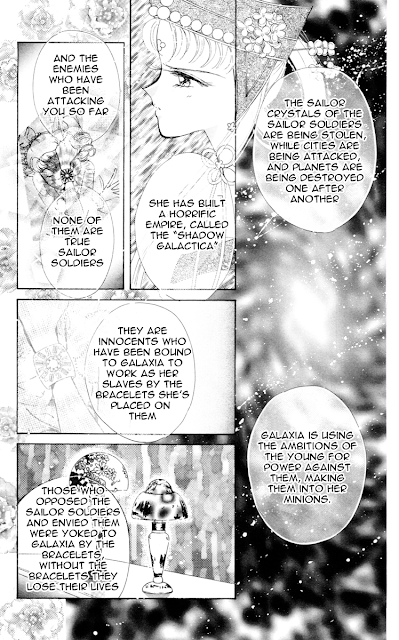
.jpg)



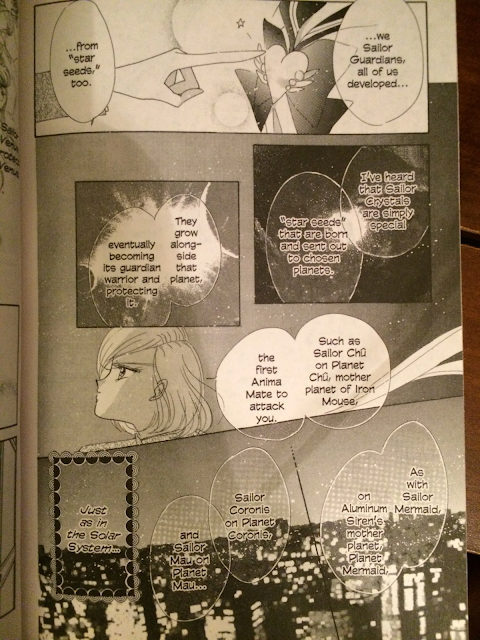
.jpg)







